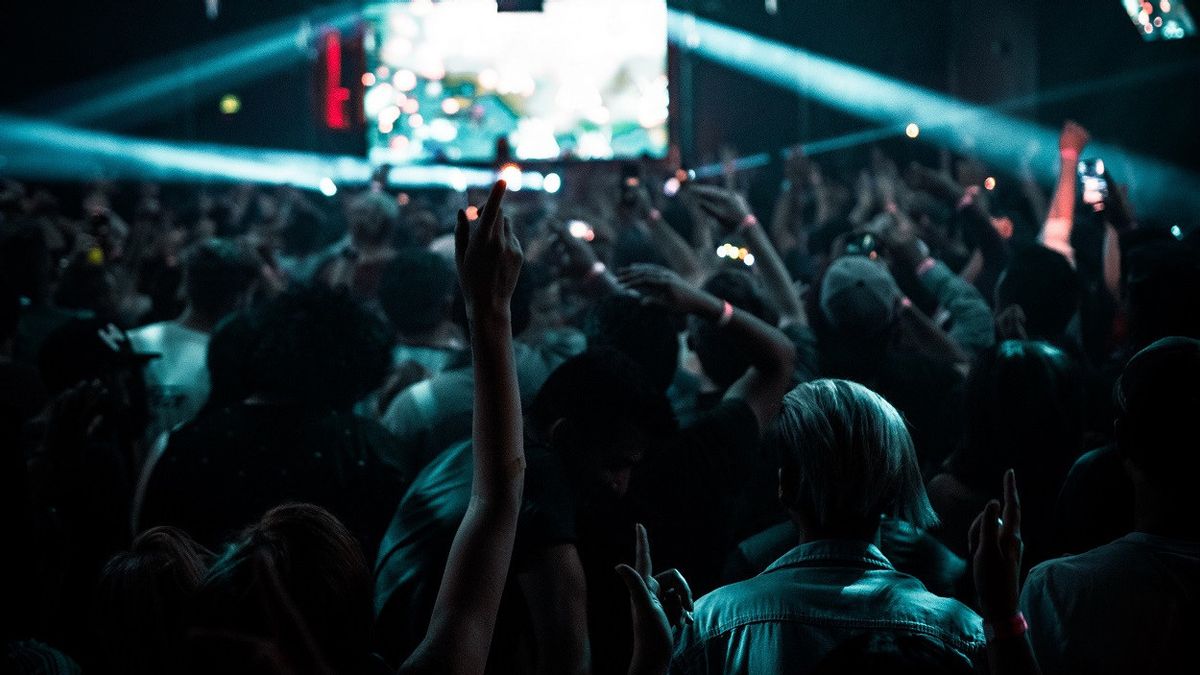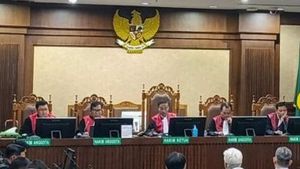JAKARTA - Young people are at risk of hearing loss from loud music in venues such as nightclubs and concerts, the World Health Organization (WHO) said as it issued a new global standard for safe listening.
Nearly 40 per cent of adolescents and young adults aged 12-35 years in middle and high-income countries are exposed to potentially damaging sound levels in places such as nightclubs, discos and bars, the WHO said in a statement. March.
WHO Director for the Department of Non-Communicable Diseases Bente Mikkelse said the risk of hearing loss was increased because most audio devices, venues and events did not provide safe listening options.
"Millions of adolescents and young people are at risk of hearing loss due to the unsafe use of personal audio devices and exposure to damaging sound levels in places such as nightclubs, bars, concerts and sporting events," said WHO Director for the Department of Non-Communicable Diseases Dr. Bente Mikkelsen, quoted from UN News 21 March.
"The risk is increased because most audio devices, venues and events do not provide safe listening options and contribute to the risk of hearing loss," he added.
The WHO also said they recommended direct monitoring of sound levels and establishing "quiet zones" in such places.
The Global Standard for safe listening in venues and events, highlighting six implementation recommendations to ensure that venues and events limit the risk of hearing loss for their customers, while maintaining high-quality sound and an enjoyable listening experience.
The six recommendations are broadly defined: Maximum sound level is 100 decibels. Live monitoring and recording of sound levels using calibrated equipment. Optimized venue acoustics and sound system to ensure pleasant sound quality and safe listening. Make personal hearing protection available to audiences including instructions for use. Access to a quiet zone for people to rest their ears and reduce the risk of hearing damage. And, providing training and information to staff.The new recommendations are in addition to guidelines issued by the WHO in 2019, outlining how individuals can limit hearing damage from prolonged exposure to loud music on devices such as cell phones and audio players.
The WHO warns that hearing loss due to loud noises is permanent, underscoring that exposure to loud noises causes temporary hearing loss or tinnitus. And, prolonged or repeated exposure can cause permanent hearing damage, resulting in irreversible hearing loss.

Calling for new global standards to be supported, WHO encourages governments to develop and enforce laws for safe listening and raise awareness of the risks of hearing loss.
In addition, WHO also suggests behavior change can be motivated by civil society organizations, parents, teachers and doctors, who can educate young people to practice safe listening habits.
"Governments, civil society and private sector entities such as manufacturers of personal audio devices, sound systems and video game equipment as well as owners and managers of entertainment and events venues have an important role to play in advocating for new global standards," said WHO Assistant Director-General Dr. Ren Minghui.
"We must work together to promote safe listening practices, especially among young people," he concluded.
To note, more than 1.5 billion people worldwide live with hearing loss, and according to recent estimates, this number could increase to more than 2.5 billion by 2030. WHO estimates that 50 percent of hearing loss is preventable. through public health measures.
The English, Chinese, Japanese, Arabic, and French versions are automatically generated by the AI. So there may still be inaccuracies in translating, please always see Indonesian as our main language. (system supported by DigitalSiber.id)













